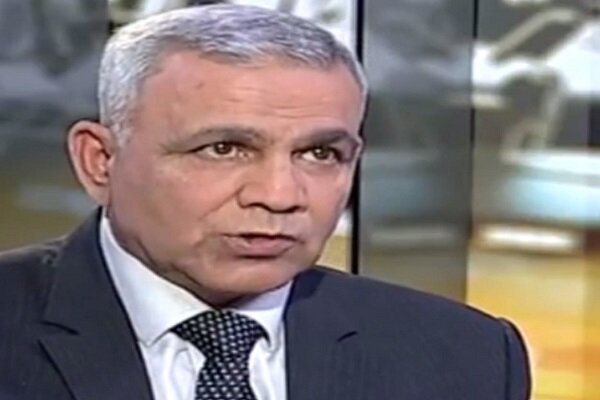Omar Maarabouni the Syrian military analyst emphasizes that harassing an Iranian passenger plane by American fighters is a kind of "terrorist act" practiced by a state.
TEHRAN - In the latest escalation between the United States and Iran, two American fighters intercepted an Iranian passenger plane over Syria. The harassment led to the injury of some passengers.
The Iranian plane, belonging to Mahan Air, was heading from Tehran to Beirut on Thursday 23 July when the pilot staged a safety maneuver to avoid a collision.
In this regard, Omar Maarabouni, a Syrian military analyst, tells the Tehran Times that U.S. adventurous actions are flagrant breaches of international law.
Maarabouni thinks that three countries are tasked to respond to the American measure: Iran, Syria, and Lebanon.
"Iran, as the owner of the Mahan airplane, Syria which the plane passed through its airspace, and Lebanon because many Lebanese were on the plane," he explains.
Noting that these three countries must deal with American harassment, the Syrian expert stresses that the response to the U.S. by legal means is the first step.
"I think Iran and Syria Lebanon will submit a complaint at the United Nations about the dangerous American adventure; however, Lebanese response was not strong enough as we saw no condemnation nor complaint by its foreign minister," according to Maarabouni.
Asked about Iran's possible response to the interception of its civilian aircraft over Syrian skies, the Syrian analyst believes that the issue will remain within the framework of international law because an issue of this importance is complicated to a very large degree.
"Iran, until this moment, condemned and denounced the move, and considered it international terrorism practiced by a superpower," he points out.
Iranian officials have said the plane had obtained all the necessary licenses and was flying in a commercial route and that warplanes have no right to inspect the civilian planes in this route; additionally, Syria is responsible for protecting its airspace.
Responding to a question about Iran's retaliation, the Syrian analyst rules out that Iran resorts to a military response, saying it contradicts the Iranian values.
"While Iran has denounced such a terrorist act, it cannot behave similarly," Maarabouni notes.
Commenting on the trick that Israeli fighter jets use to deceive the Syrian air defenses by hiding behind passenger planes, Maarabouni says it is not the first time that American and Israeli fighters violate international law using civil aircraft.
"This is the same crime Israel committed when they deceived Syrian air defenses to shoot down a Russian plane carrying a group of experts on board that led to the death of all of the officers and specialists," he explains.
In the Al-Tanf region, when the Iranian plane was harassed by U.S. fighter jets on Thursday 23 July before managing to safely land in the Lebanese capital, Syrian radars and air defense units gave clear orders to the plane which was heading to Damascus airport to go north and land at Khmeimim airbase, according to Syrian officials.
This measure came to protect the plane at the moment as Israeli aircraft took advantage of the presence of a civilian aircraft to fire missiles at Syria.
Maarabouni is of the view that the goal was to repeat the Russian plane disaster by misleading Syrian radars and air defense.
Regarding the messages that Israel and America try to send by provoking Iran in recent months, the military analyst says that there are multiple messages.
"The U.S. in the first place clearly sends a message that in the moment of the outbreak of a possible confrontation in the region, Tehran-Damascus, and Tehran-Beirut airlines can be targets," he maintains. "The message had reached those concerned in Syria, Lebanon, and also in Iran."
However, Maarabouni emphasizes that there is a problem with the message, saying legally such moves are a kind of terrorist act practiced by a state.
"We can call it 'state terrorism' in which a government tries to target peoples of another country by violating the rules of war. Even the war has its own rules and humanitarian principles while the U.S. adventures are flagrant breaches of these rules," he concludes.
TAGS


No comments:
Post a Comment